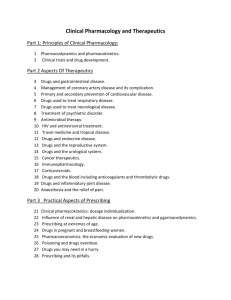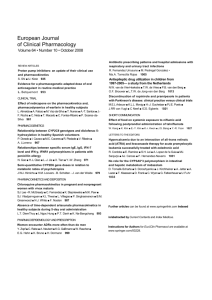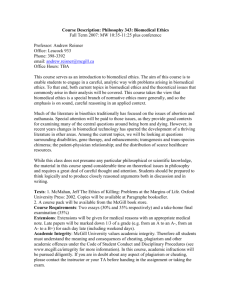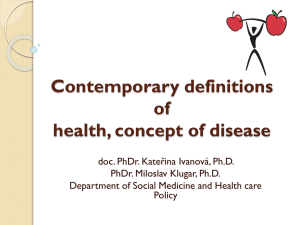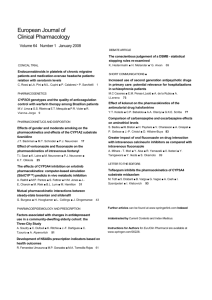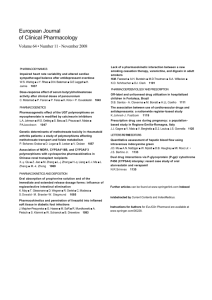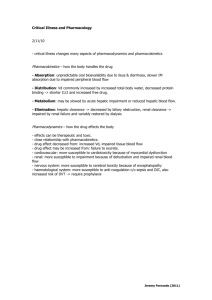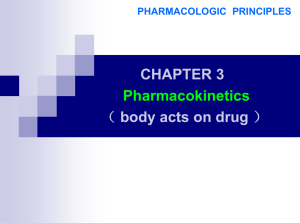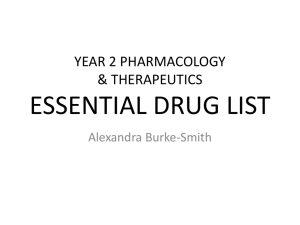in silico
advertisement
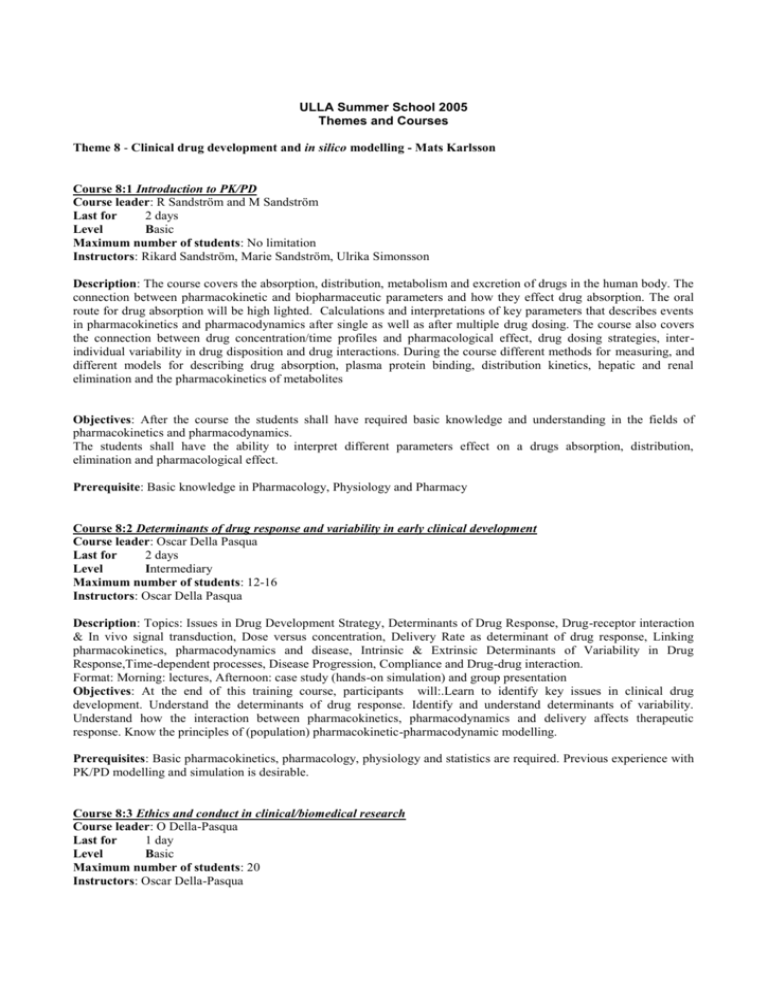
ULLA Summer School 2005 Themes and Courses Theme 8 - Clinical drug development and in silico modelling - Mats Karlsson Course 8:1 Introduction to PK/PD Course leader: R Sandström and M Sandström Last for 2 days Level Basic Maximum number of students: No limitation Instructors: Rikard Sandström, Marie Sandström, Ulrika Simonsson Description: The course covers the absorption, distribution, metabolism and excretion of drugs in the human body. The connection between pharmacokinetic and biopharmaceutic parameters and how they effect drug absorption. The oral route for drug absorption will be high lighted. Calculations and interpretations of key parameters that describes events in pharmacokinetics and pharmacodynamics after single as well as after multiple drug dosing. The course also covers the connection between drug concentration/time profiles and pharmacological effect, drug dosing strategies, interindividual variability in drug disposition and drug interactions. During the course different methods for measuring, and different models for describing drug absorption, plasma protein binding, distribution kinetics, hepatic and renal elimination and the pharmacokinetics of metabolites Objectives: After the course the students shall have required basic knowledge and understanding in the fields of pharmacokinetics and pharmacodynamics. The students shall have the ability to interpret different parameters effect on a drugs absorption, distribution, elimination and pharmacological effect. Prerequisite: Basic knowledge in Pharmacology, Physiology and Pharmacy Course 8:2 Determinants of drug response and variability in early clinical development Course leader: Oscar Della Pasqua Last for 2 days Level Intermediary Maximum number of students: 12-16 Instructors: Oscar Della Pasqua Description: Topics: Issues in Drug Development Strategy, Determinants of Drug Response, Drug-receptor interaction & In vivo signal transduction, Dose versus concentration, Delivery Rate as determinant of drug response, Linking pharmacokinetics, pharmacodynamics and disease, Intrinsic & Extrinsic Determinants of Variability in Drug Response,Time-dependent processes, Disease Progression, Compliance and Drug-drug interaction. Format: Morning: lectures, Afternoon: case study (hands-on simulation) and group presentation Objectives: At the end of this training course, participants will:.Learn to identify key issues in clinical drug development. Understand the determinants of drug response. Identify and understand determinants of variability. Understand how the interaction between pharmacokinetics, pharmacodynamics and delivery affects therapeutic response. Know the principles of (population) pharmacokinetic-pharmacodynamic modelling. Prerequisites: Basic pharmacokinetics, pharmacology, physiology and statistics are required. Previous experience with PK/PD modelling and simulation is desirable. Course 8:3 Ethics and conduct in clinical/biomedical research Course leader: O Della-Pasqua Last for 1 day Level Basic Maximum number of students: 20 Instructors: Oscar Della-Pasqua Description: The one day awareness training will cover the following aspects: Introduction to Ethics and Scientific Conduct in Clinical/Biomedical Research. Good Academic Research Practice (GARP). Peer pressure, conflict of interests and fraud. Guidelines and standards of quality in biomedical research. Good Clinical Practice (GCP). Medical ethics (Declaration of Helsinki), conflict of interests and fraud. Guidelines and regulations within the Pharmaceutical Industry. Publish or perish: ethics and fraud in scientific literature. Format: Morning: lectures and discussion. Afternoon: case study and group presentation Objectives: At the end of this awareness session, participants will: Understand the drivers and standards of quality in clinical/biomedical research. Learn how to assess quality in published scientific literature and study reports. Learn how to ensure transparency and rigour in clinical/biomedical research. Develop a code of ethics and conduct for themselves Prerequisites: Biomedical /clinical research experience within a PhD programme.
